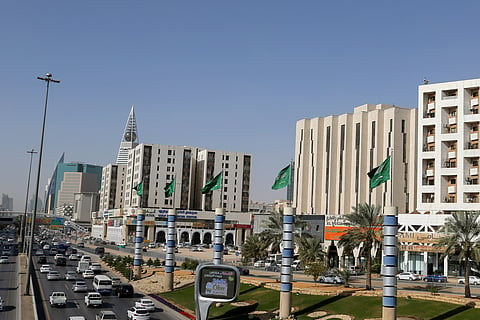

Saudi Arabia's Ministry of Finance, represented by Deputy Minister for International Affairs Dr. Ryadh Alkhareif, participated virtually, on August 25, 2021, in the Fifth Annual Islamic Conference (AIFC), entitled "The Role of Islamic Finance in Promoting Economic Recovery: Enhancing Productivity, Financial Stability, Sustainable and Inclusive Growth".
AIFC aims to promote and exchange discussion and experiences in the application of the economic and financial framework in accordance with Islamic law, and the use of Sharia-compliant financial instruments, as well as discussing the contribution and innovation of Islamic economic and finance opportunities and challenges during the pandemic period and beyond.
During the conference, Dr. Alkhareif pointed out the Saudi government's swift, strong and well-targeted response to COVID-19 pandemic, on both domestic and international levels. Under its G20 Presidency, Saudi Arabia has spearheaded the global efforts to mitigate the impact of the COVID-19 pandemic. The G20 Presidency and members have also provided a stimulus support by more than US $10 trillion to achieve the global recovery. The Saudi Presidency has also advocated for distributing and providing access to vaccination and healthcare services particularly for low-income countries.
The Deputy Minister for International Affairs highlighted the progress achieved under the Debt Service Suspension Initiative (DSSI) in delivering $5 billion in debt relief to more than 40 of the 73 eligible countries and in the implementation of the G20 Common Framework for Debt Treatments beyond the DSSI.
Dr. Alkhareif underscored the importance to take into account social protection and spending. He pointed out that one of the key priorities by the Saudi government is to promote a more inclusive recovery and investment in human capital. To this end, Dr. Alkhareif confirmed that the Saudi government has succeeded in providing amble resources for social spending, which accounts for more than 30% of its budget resources.
He explained that Saudi G20 Presidency had also focused on financial inclusion, utilizing FinTech and integrating technology to provide support to women, youth and underbanked sectors.
Dr. Alkhareif explained that the Kingdom of Saudi Arabia's strong structural reforms and investment in the Information and Communication Technologies (ICT) infrastructure enabled the public and private sectors to maintain their operation through the lockdown via various online platforms. In addition, technology has been used to manage the health situation both proactively and reactively, which provided a good hedge against the wide spread of cases in Saudi Arabia.
